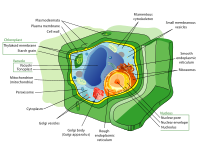Cytorrhysis

Cytorrhysis is when the inside of a cell gets really squished and shriveled up. It's like if you had a balloon filled with water and then someone poked a hole in it and all the water spilled out.
When a cell gets cytorrhysed, it means that water has been taken out of the cell, and it can't function properly anymore. This can happen from things like extreme heat or cold, lack of water, or exposure to high concentrations of salt or other chemicals.
Just like you need water to stay healthy and hydrated, cells need water to stay healthy and function properly. So, when a cell loses too much water, it can't do its job anymore and can die.
Scientists study cytorrhysis to understand how cells work and what can happen to them in different environments. By understanding cytorrhysis, they can also find ways to protect cells and keep them healthy.
When a cell gets cytorrhysed, it means that water has been taken out of the cell, and it can't function properly anymore. This can happen from things like extreme heat or cold, lack of water, or exposure to high concentrations of salt or other chemicals.
Just like you need water to stay healthy and hydrated, cells need water to stay healthy and function properly. So, when a cell loses too much water, it can't do its job anymore and can die.
Scientists study cytorrhysis to understand how cells work and what can happen to them in different environments. By understanding cytorrhysis, they can also find ways to protect cells and keep them healthy.
